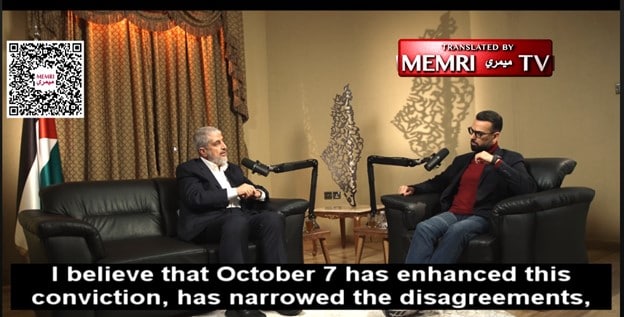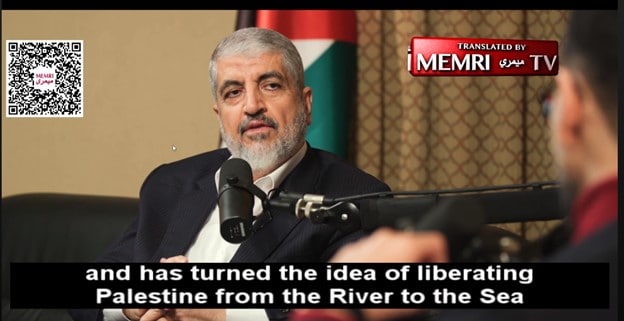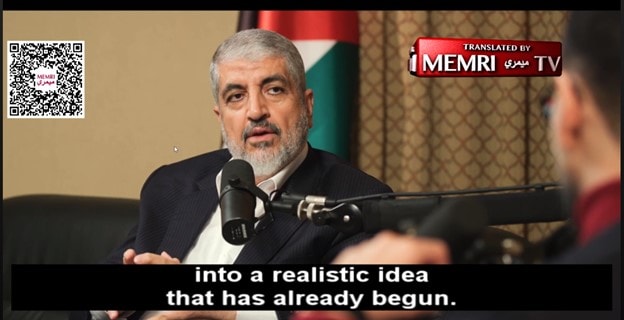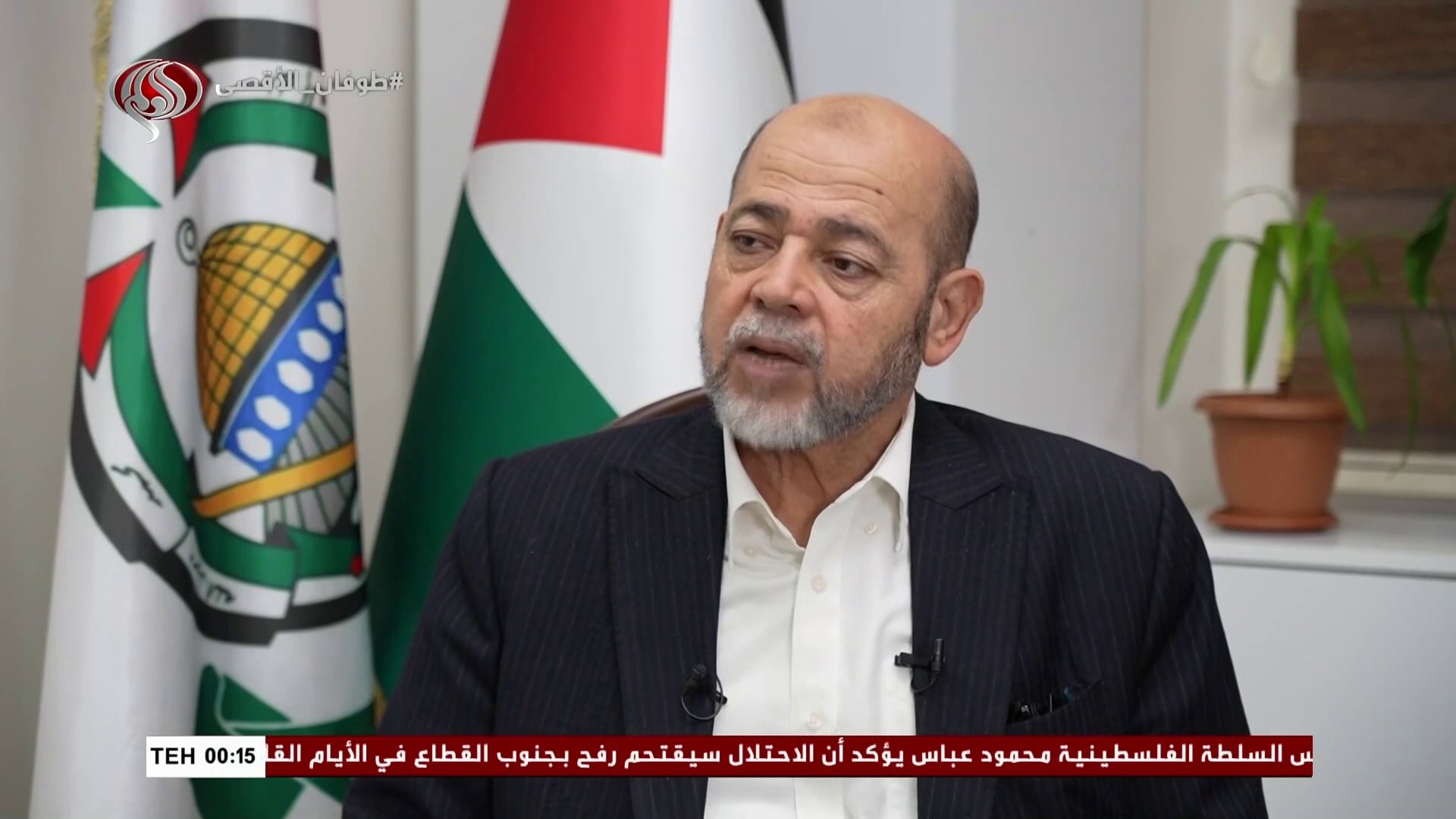
In a three-part interview with Kuwaiti podcaster Amar Taki, posted during the second week of January 2024, Khaled Mashal, the leader of Hamas abroad, rejected the two-state solution. He said that there is a consensus among Palestinians that they will not give up their rights to Palestine from the Mediterranean River to the Mediterranean Sea. Mashal said that October 7 has renewed this dream and hope and shown that it is a realistic idea, not merely a dream. He stated that taking control of the Gaza Strip following the 2006 elections was necessary in order to build up the resistance, its weapons production, and tunnels, without any hindrance from the Palestinian Authority.
Khaled Mashal: "Even some of our supporters were worried that ruling [Gaza] would change us. They did not realize that coming to power was a necessity, in order to serve the people and to protect the resistance. It provided a political and administrative cover in all the [Palestinian] institutions, and gave the resistance a free hand to operate. We have used our rule [of Gaza] to build up the resistance with all its means – the weapons, the weapons production, the planning, the training, and the tunnels – while our backs were safe. In other words, there was no security coordination, no Palestinian Authority to persecute us…"
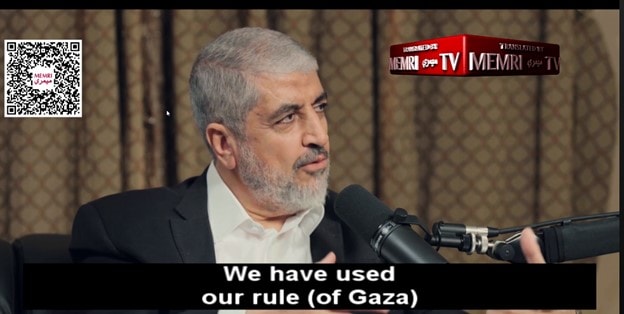
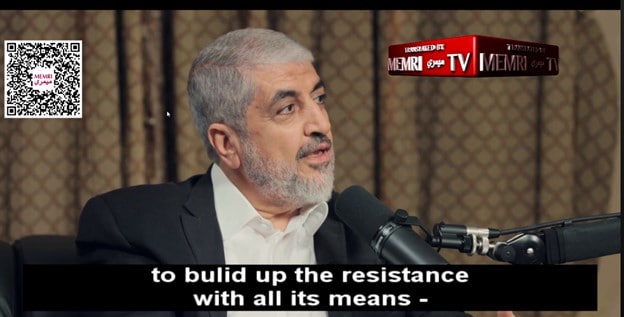
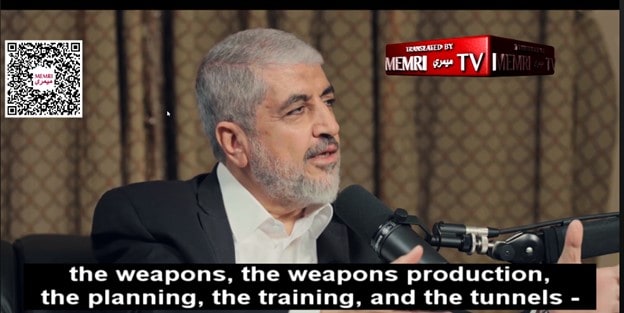
Interviewer: "No one to stab you in the back…"
Mashal: "Hamas did not set its eyes on ruling [Gaza]. Hamas was looking for a ruling authority that would [serve] the resistance. Authority under occupation is a mistake. That was the first mistake of the Oslo accords. But since this authority has become, since 1994, fait accompli, due to the Oslo Accords, Hamas's philosophy when it entered the 2006 elections, was [that] we wanted to subordinate this authority, which was already a fact on the ground, to the service of the people and of the resistance, and this is what happened. As soon as we won the 2006 elections, we captured the Israeli soldier [Gilad] Shalit, and the prisoner swap deal was in 2011. This was practical evidence that Hamas had subordinated its rule [of Gaza] to the service of the resistance, rather than giving up the resistance for the sake of this authority.
"People are saying now that the October 7 war has opened a new horizon for a vision of a political settlement. Here, they pull out their old 'merchandise' of the two-state solution. I would like to say two things about the two-state solution. First, we have nothing to do with the two-state solution. We reject this notion, because it means you would get a promise for a [Palestinian] state, yet you are required to recognize the legitimacy of the other state, which is the Zionist entity. This is unacceptable. We demand to be liberated, to get rid of the occupation, and to have our independence, and our state. [Israel] is my enemy. It is not my concern."
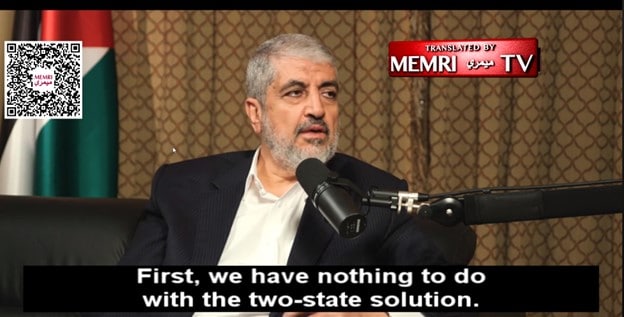
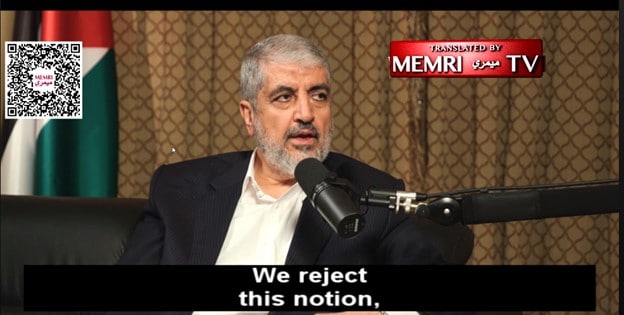
Interviewer: "What 'state' are you talking about?"
Mashal: "A Palestinian state."
Interviewer: "What Palestinian state?"
Mashal: "Obviously, the position of Hamas, and the position of the vast majority of the Palestinian people, especially following October 7, I believe that the dream and the hope for Palestine from the River to the Sea, and from the north to the south, has been renewed. This has also become a slogan chanted in the U.S., and in western capital cities, by the American and Western public.
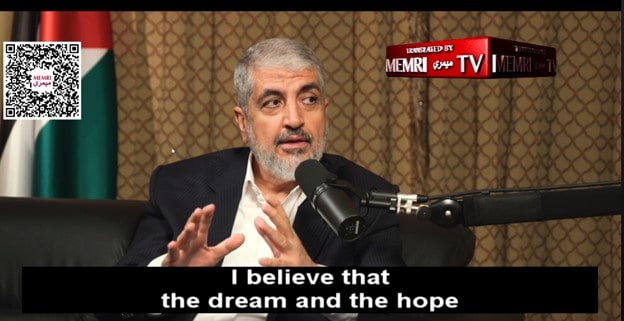
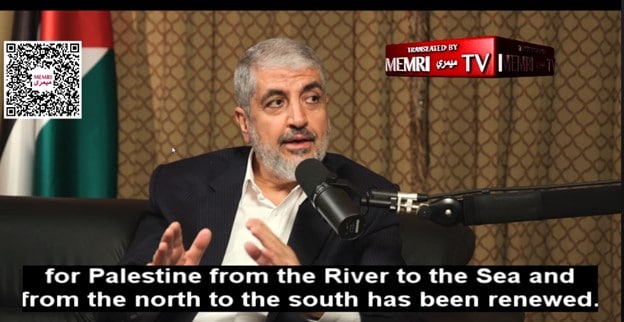
"'Palestine from the River to the Sea' - that's the slogan of American students, and the [students] in European capital cities. Our Palestinian enterprise, on which there is almost a Palestinian national consensus…Even if some people must voice a different opinion, due to political constraints…
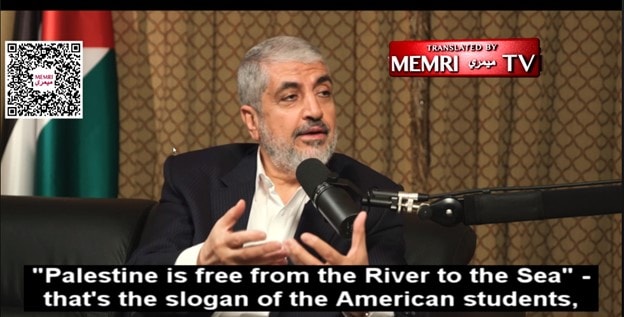
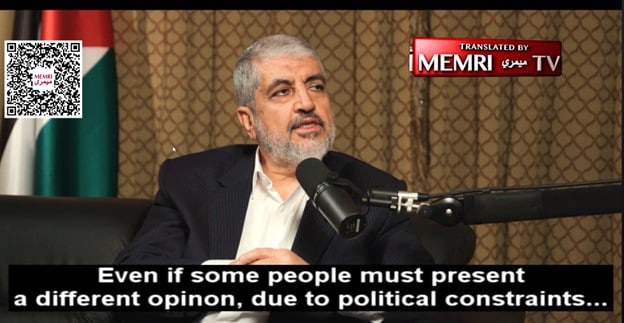
"The Palestinian consensus - or almost a consensus – is that we will not give up on our right to Palestine in its entirety, from the [Jordan] River to the [Mediterranean] Sea, and from Rosh HaNikra to Eilat or the Gulf of Aqaba.
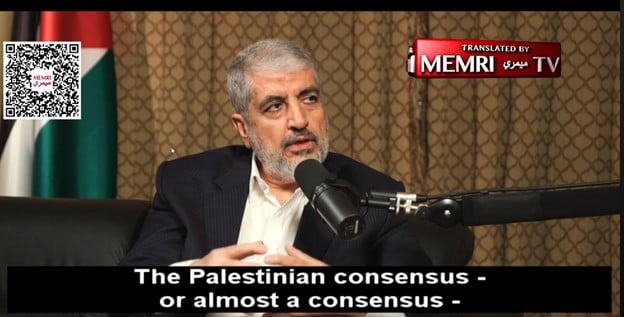
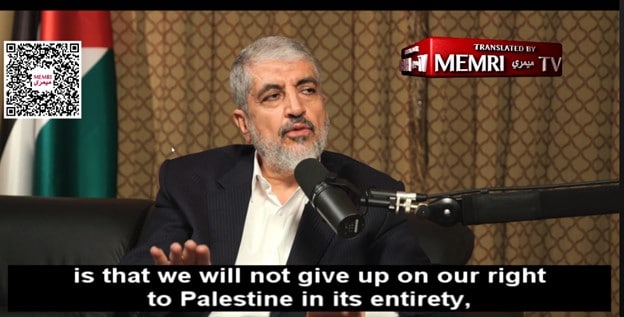
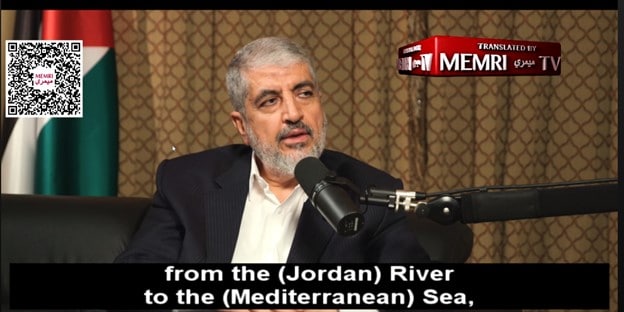
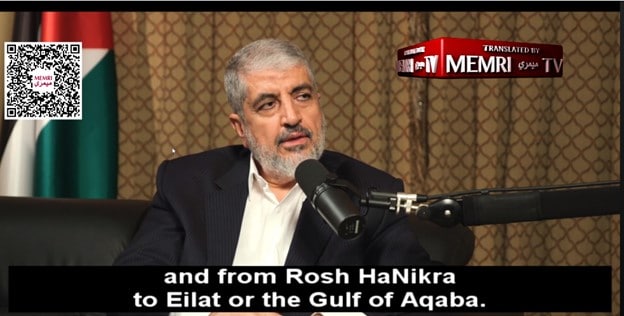
"In order to establish a common ground, and a joint Palestinian plan with the other Palestinian with the other Palestinian forces, and in line with the other Arab position. Hamas agreed to a completely independent [Palestinian] state, with the 1967 borders, with Jerusalem as its capital, with the right of Return included – without recognizing the legitimacy of the Zionist entity.
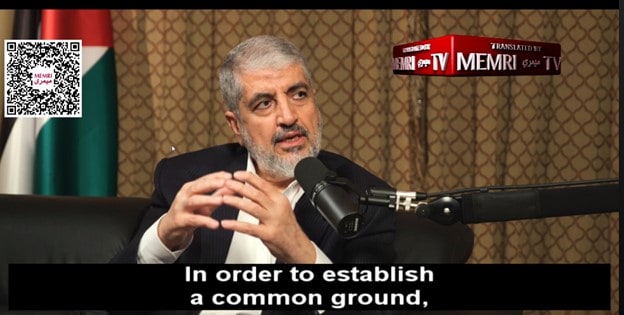

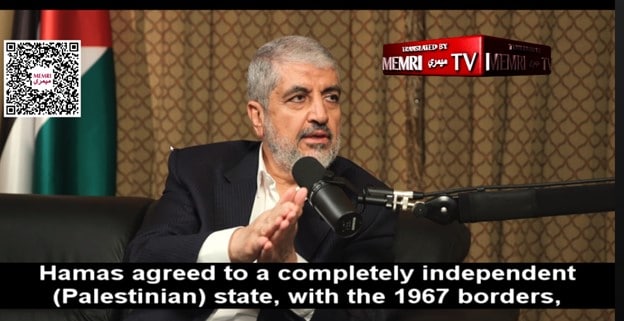
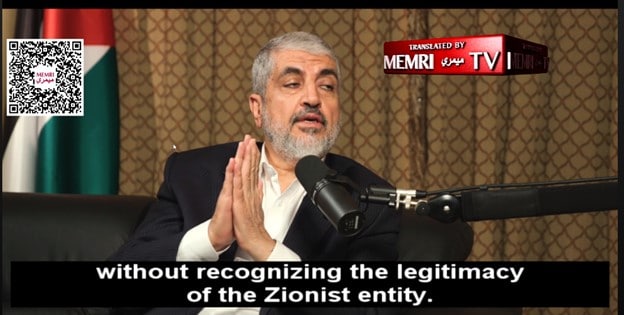
"This position was meant to facilitate Palestinian and Arab agreement at this stage, but without relinquishing any of our rights or any part of our land, and without recognizing Israel. Our vision remains unchanged.
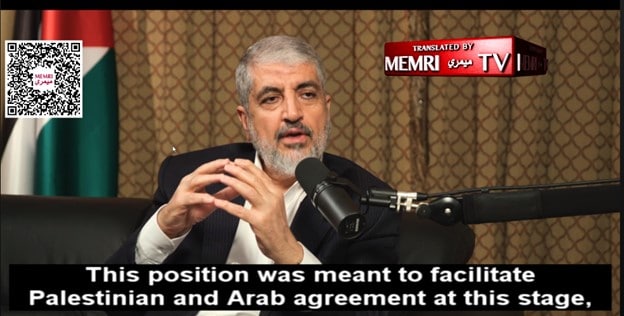
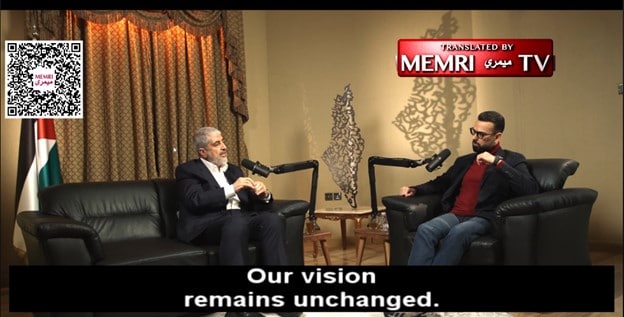
"I believe that October 7 has enhanced this conviction, has narrowed the disagreements, and has turned the idea of liberating Palestine from the River to the Sea into a realistic idea that has already begun. It is not something [merely] to be expected or hoped for. It is part of the plan, part of the agenda, and we are standing on its threshold, Allah willing."
